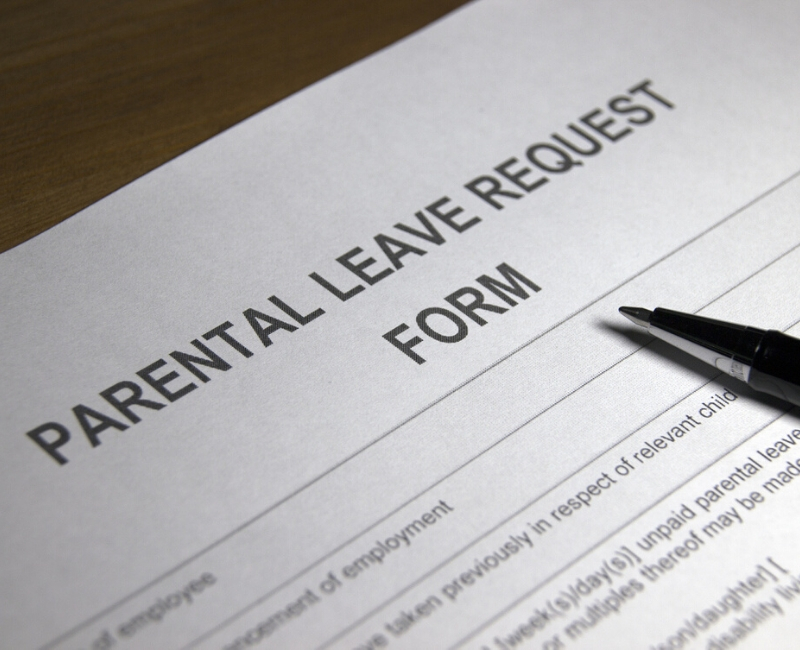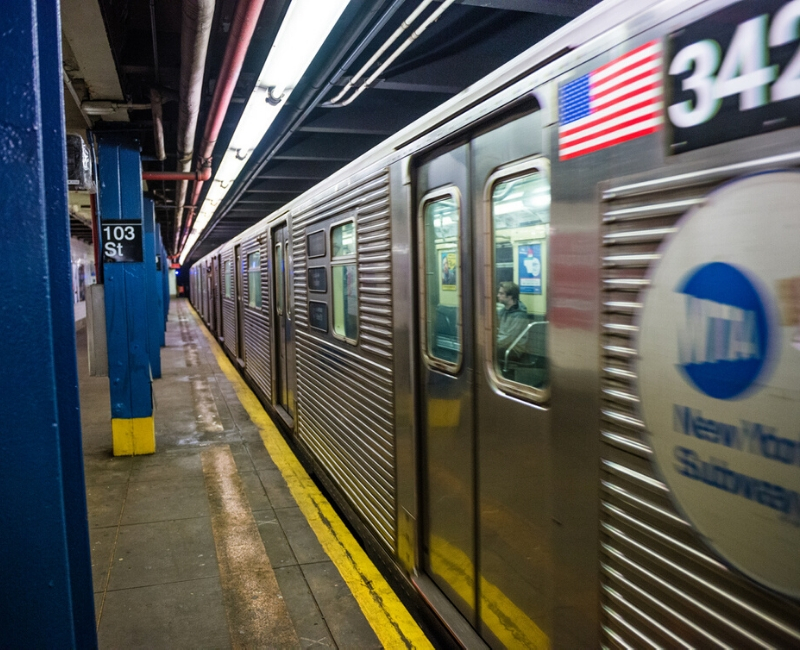
There is no greater heartbreak than losing a child. For one New York City couple, that heartbreak was compounded right after their child was stillborn. In the thick of mourning, Reinaldo Lopez learned his employer had denied him paternity leave.
When his partner, Elyse Ortiz, was eight months pregnant, she noticed their baby had stopped kicking. A visit to the doctor with Reinaldo confirmed their worst fears. They'd lost their son, whom they named Sylas. That night, Elyse delivered the baby boy. The couple had been so excited to be first-time parents and were completely broken by the loss.
More from LittleThings: A Mom Causes Chaos After Telling Her Pregnant Daughter-In-Law To Stop Being Self-Centered
After that, matters were made worse. Reinaldo learned that his employer had denied him paternity leave. The 33-year-old is a New York City Transit worker with the Metropolitan Transportation Authority. He needed the time off to heal and be with Elyse.
Reinaldo worked with his union to try to secure the two weeks of guaranteed paternity leave promised in his latest contract. Due to the fact that his child was stillborn, Reinaldo was granted only three days of bereavement leave.

No one is ever prepared for the heartbreak that comes after losing a child. For one set of first-time parents-to-be, they were crushed to learn that their son's heart had stopped beating just one month away from his due date. Elyse Ortiz gave birth to her stillborn son, Sylas, on February 1.

Elyse and partner Reinaldo Lopez were completely crushed by their loss. "We were devastated," he told the New York Daily News. "You feel like you should get some kind of reward from putting all that effort into a natural birth, which is holding your baby and hearing them cry."
In the midst of their mourning, things became worse when Reinaldo learned that his employer had denied him paternity leave. The MTA expected Reinaldo to return to work three days after the death of his son, the standard bereavement leave allotted. "One of those days was spent with me in the hospital all day," Elyse told CBS 2.
Reinaldo had requested paternity leave. He believed he'd get the two weeks of paternity leave, as negotiated in his union's latest contract. Representatives from the union helped Reinaldo move vacation days to get a few additional days.
"They told him that because the baby was dead he wasn’t entitled to paternal leave," Elyse noted.

Both the MTA contract and his union contract promised two weeks of paid leave for new parents, Reinaldo learned.
"We were reading up on the transit rules and all it says about paternal leave is that you just need to have a birth," he explained. "Nowhere in the literature does it state that you will not be entitled to paternity leave if the baby is stillborn."

"I wasn’t ready to go back to work. Bills need to be paid, but mentally it’s too recent," Reinaldo explained. "You’re operating a train through tracks that sometimes are being worked on, there’s people there trying to flag you down. A lot of crazy stuff can happen when your mind is not where it's supposed to be operating a train."

The MTA and the union ratified a new contract in January. The provision to implement the two weeks of paid family leave included in the agreement is still being negotiated, however, according to MTA officials. Since it wasn't a guarantee, it was at the MTA's discretion.

"As an organization and as colleagues of Mr. Lopez, we are very sorry for his family’s loss," said MTA spokesman Tim Minton. "The MTA is a compassionate employer that encourages employees to take advantage of the many programs we have for employees who are going through difficult situations."
As Reinaldo's story spread, people couldn't believe how heartless the organization had been.
The pubic outcry was swift. The MTA had very few defenders, as most felt it was a horrible way to treat an employee who was struggling. They believed it spoke to the bigger issue of how maternity and paternity leave is handled in the country.

A study on the psychological effects of stillbirth and neonatal death on fathers shows how detrimental this could be. Fathers have been found to experience "significant levels of anxiety and post-traumatic stress disorder," according to one study. "The vulnerability of fathers to psychological distress during the pregnancy after a stillbirth needs to be recognized."

In addition to that, men are more likely to repress feelings because they are trying to care for their partners. They believe indulging in their own pain will add to their partners' pain, and they refrain as a result. Eventually, even the toughest dams break.
"The idea is that baby loss is exclusively a woman's issue," notes James Kocsis, founder of the tech startup Give InKind.
"The assumption that men aren't as affected may have validity, but this isn't a contest. Our hopes and dreams were crushed too. A lot of men try to hide their pain, to make it invisible to others and to themselves. But even when they succeed, the pain is still there."
The public's very vocal reaction likely played a large hand in the MTA changing its tune. On Wednesday, the authority announced a change of heart.
"He’s going to get parental leave. I think everybody on our side was moved by our colleague’s situation," said Pat Foye, the MTA's chairman.
In addition to doing the right thing by Reinaldo, the MTA vows to do better moving forward. It vows that all parents in this situation will be given the appropriate leave. That is a major win, but it's still unbelievable what it took to get to this point.




